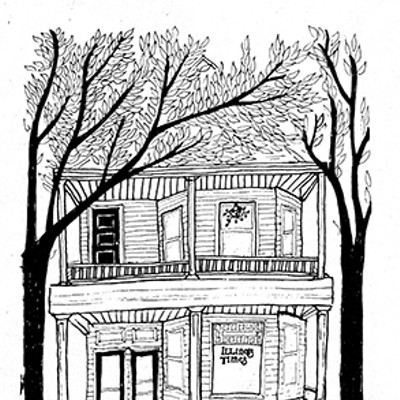
Knowing what doesn’t work in the classroom may help keep a mediocre school from becoming a worse one, but only knowing what does work in the classroom can turn a mediocre school into a good one. There are a hundred prescriptions for fixing the schools out there, and while most cost a great deal of money, most are barely worth a dime a dozen, save one – better teaching.
A teacher who is good at the work will get better results (even with a hard-to-teach child) than one who is not. But what makes a teacher good at the work? For decades, school administrators thought they knew. An acceptable teacher in Illinois must have a minimum amount of formal education and she must have been certified by education bureaucrats. A better teacher is one who has more formal education and more experience in the classroom, and is better to the extent that she has more of both, until one reaches pedagogical perfection in the form of the 20-year Ph.D.
These metrics of teacher performance embody an assumption, or rather a hope, that if a school gets the hiring right, the classroom will be right. Unhappily for students, there is little persuasive evidence that certification, education or experience have much to do with the quality of what goes on in the classroom. Teachers with an M.A. are no more effective than teachers with a B.A., at least not just because they have an M.A. Uncertified but educated and motivated rookies drafted into classrooms via such programs as Teach for American sometimes are more effective than their traditionally certified colleagues, sometimes not, but again certification itself is pretty plainly not the reason for the difference.
As for experience, a rookie teacher makes mistakes, sure, but they usually learn what they need to know – about kids, about the work and about themselves – in two or three years. After that, experience in the same field has little improving effect on a good teacher and usually has the opposite effect on a bad one, who learns how little he needs to do to get by.
Commitment to the craft, which figures conspicuously in profiles of good teachers, doesn’t show up on a resume, but it does in a classroom. The problem is that the usual test of teacher performance – the standardized test scores of their students – mainly reflects a teacher’s commitment to teaching the tests. Using such results as a marker for teacher quality is like giving Oscars to directors whose cast did the best job of memorizing lines.
Teaching, which likes to call itself a profession, might borrow from real professions evaluation methods that are both more comprehensive and more rigorous than test scores. Make “before and after” testing of kids a part of such an evaluation regimen, sure, but include personal evaluations by a master teacher or principal with teaching experience. Up in Elgin, School District U-46 this year adopted a system that focuses on the process of teaching, not student test scores, based on classroom observations.
Teachers who know how to teach often don’t get the chance to, what with lawyers and software makers and bureaucrats and butt-in-ski parents looking over their shoulders. State Sen. Bill Brady, who has simple answers for all of Illinois’ problems, has said that the Illinois State Board of Education should be abolished and control of schools left to local school officials and parents. Someone should remind Brady that bureaucrats have come to impose state and federal standards on local schools because the local school official and parents who have been running local schools for decades so often make a dog’s breakfast of it.
In an ideal Illinois, the people setting policy for schools would be the people who know most about teaching and about kids – the teachers. The New York Times ran a heartening story the other day, about a huge high school in Massachusetts whose 4,100 mostly poor students struggled to meet statewide minimums in every field except failure. A group of teachers, knowing that no learning in any subject happens unless a kid can first read, write, speak and reason, found ways to teach these essential skills in every class every day, even gym. (Nothing else had worked, so the principal gave them carte blanche for this coup d’ecole.) This year and last, the school’s students outperformed 90 percent of Massachusetts high schools.
One could go on – indeed must go on, since virtually every aspect of the present system mitigates against good teaching, from flat salary schedules to lay school boards. Hire teachers who know what to teach, not just how. Train them using extended apprenticeships under master teachers rather than paper certification. Fire the worst and allow the best to help the many who are in between to become better. Give raises for proven merit, not mere longevity. In short, treat teachers as professionals – and expect them to act like it.
Contact James Krohe Jr. at [email protected].





















